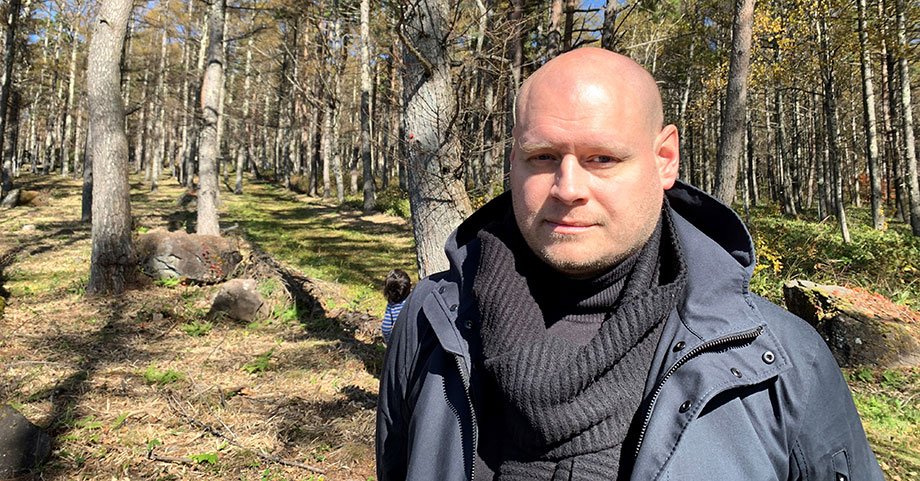- Námið
- Námsframboð
- Allt nám
- Grunnnám
- Félagsvísindi
- Fjölmiðlafræði
- Nútímafræði
- Lögfræði
- Sálfræði
- Lögreglufræði
- Kennarafræði
- Hjúkrunarfræði
- Iðjuþjálfunarfræði
- Líftækni
- Náttúru- og auðlindafræði
- Sjávarútvegsfræði
- Viðskiptafræði - stjórnun og markaðsfræði
- Viðskiptafræði - stjórnun og fjármál
- Viðskiptafræði - sjávarútvegsfræði
- Tölvunarfræði
- Tölvunarfræði Diplóma
- Sjávarútvegsfræði og viðskiptafræði
- Lögreglufræði fyrir starfandi lögreglumenn
- Lögreglu- og löggæslufræði
- Sjúkraliðar öldrunar- og heimahjúkrun
- Sjúkraliðar samfélagsgeðhjúkrun
- Tæknifræði
- Tölvunarfræði
- Lagareldi
- Framhaldsnám
- Auðlindafræði
- Félagsvísindi
- Heimskautaréttur
- Lögfræði
- Menntavísindi - Almennt svið
- Menntavísindi - Lestrarfræði
- Menntavísindi - Sérkennslufræði
- Menntavísindi - Stjórnun og forysta
- Menntavísindi - Upplýsingatækni
- Menntunarfræði
- Menntunarfræði diplóma
- Heilbrigðisvísindi
- Endurhæfing
- Heilsugæsla í héraði - fræðileg
- Langvinn veikindi og lífsglíman
- Ljósmæður - heilbrigði kvenna
- Stjórnun í heilbrigðisþjónustu
- Öldrun og heilbrigði
- Iðjuþjálfun
- Doktorsnám
- Verkir og verkjameðferð
- Sjávarbyggðafræði MA
- Haf- og strandsvæðastjórnun MRM
- Stjórnun sjávarauðlinda
- Menntunarfræði MT
- Starfstengd leiðsögn
- Diplómunám í menntavísindum MA
- Diplómunám: Nám og læsi - lestrarfræði
- Diplómunám: Nám og margbreytileiki - sérkennslufræði
- Diplómunám stjórnun og forysta í lærdómssamfélagi
- Diplómunám: Upplýsingatækni í námi og kennslu
- Sálfræði
- Diplómanám Forysta í lærdómssamfélagi
- MS í Stjórnun
- MM í stjórnun
- Stafræn heilbrigðistækni
- Ráðgjöf í málefnum fólks með heilabilun
- Hjartasjúkdómar og sykursýki
- Heilsugæsluhjúkrun
- Geðheilbrigði og áföll
- Hjúkrunarfræði
- Geðhjúkrun
- Kennsluráðgjöf og starfsþróun
- Iðjuþjálfun – Rannsóknartengt meistaranám
- Doktorsnám
- Skiptinám
- Símenntun
- Vísindaskólinn
- Miðstöð skólaþróunar
- Sækja um
- Námsupplýsingar
- Háskólalífið
- Námsframboð
- Stúdentinn
- Rannsóknir
- Samfélagið
- Háskólinn
- Um HA
- Fræðasvið og deildir
- Stjórnskipulag
- Háskólafundur
- Háskólaráð
- Háskólaskrifstofa
- Lög og reglur
- Ráð og nefndir
- Rektor
- Rektorsskrifstofa
- Skipurit
- Stefnur og áætlanir
- Háskólasvæðið
- Starfsfólk
The Legacy of the Nordic Peace — Historical Considerations in Trust and Trust-Building from the Cold War Nordic-Arctic Region
28. nóvember 2019 kl. 12:00-13:00
Nansen Professorship Inaugural Lecture
The Nordic-Arctic Region is undergoing rapid changes regarding its societal security. From global warming and climate change, to an increasingly unpredictable security situation where old hard-power antagonisms are rekindled between east and west—especially after the Russian annexation of the Crimean peninsula—it is becoming increasingly important to recollect the successes of the past regarding Nordic-Arctic and Barents Euro-Arctic Regional trust-building during the Cold War; a time exceedingly more precarious than today. Regionally during the Cold War, the Nordic-Arctic countries, some of which were NATO founding members and thus de facto enemies of the Soviet Union, were able to engage with the Soviets culturally, scientifically, economically, and industrially. These often unilateral activities, which ran parallel to military ones, created a situation at the height of the Cold War that enabled credence in the confidence-building over time. How this was possible can likely be explain with the conflict resilience instilled in the Nordics as part of the legacy of the Nordic Peace. This lecture will thus attempt to give one explanation on how the Nordic Peace enabled a situation in which trust-building could occur at the height of the Cold War between “enemies,” and how the lessons from this period is becoming increasingly relevant again in today’s Nordic-Arctic Region.
Gunnar Rekvig has been selected as the 2019-2020 Nansen Professor in Arctic studies at the University of Akureyri. Rekvig holds a PhD in International and Regional Studies from Tokyo University of Foreign Studies (TUFS), and an MPhil degree in Peace and Conflict Transformation from UiT The Arctic University of Norway. He was previously an Assistant Professor at Tokyo University of Foreign Studies, World Language and Society Education Center, Tokyo, Japan.
